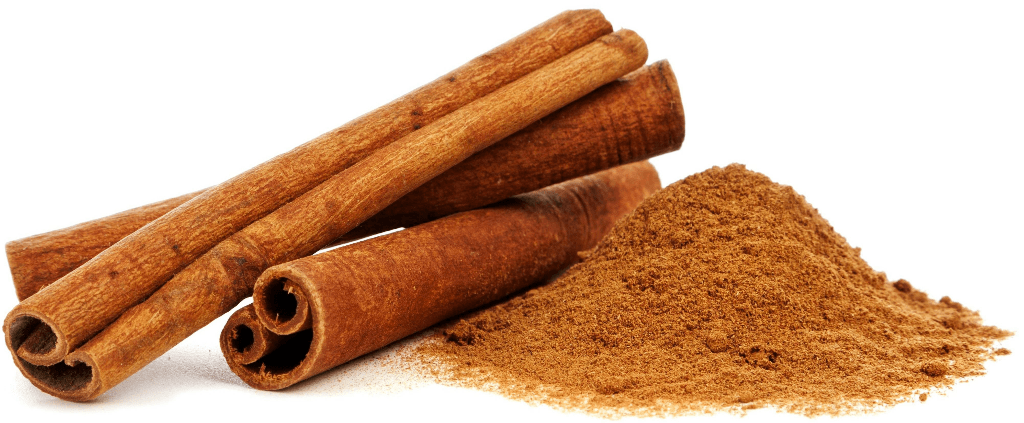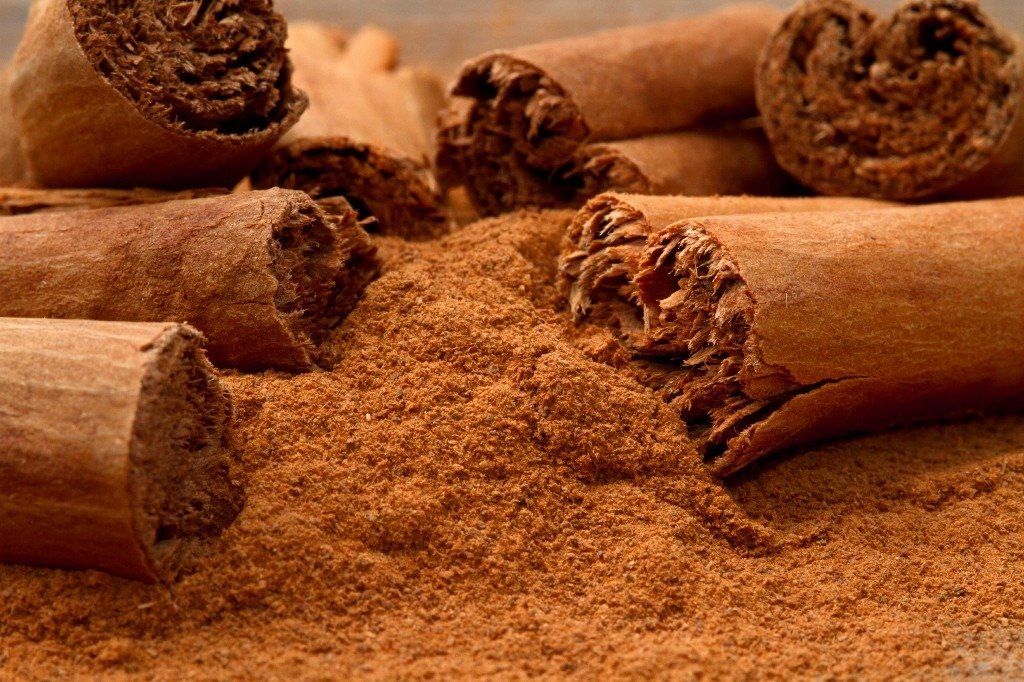Of course, cinnamon is one of the prime spices due to its remarkable scent and flavor. Aside from that, it does much more than just a flavor. It has powerful antiseptic and antimicrobial effects, making it a valuable component in hygiene-related products such as gargles and toothpaste. Thereby, its exquisite odor and taste can serve a medicinal purpose as well!
Cinnamon benefits are many, making it regrettable if never tried before. It can be part of the proper diet as a seasoning sprinkle and a component inside recipes. Along with sufficient, yet not excessive exercising, the overall good wellness is a sure thing.
So, where does the cinnamon come from? Botanically, It is the inner bark obtained from different trees that belong to the same plant family. Then, let’s see Ceylon cinnamon vs cinnamon,
• True (Ceylon cinnamon): as the name implies, its homeland is Ceylon (Sri Lanka nowadays) and is the best cinnamon type. Up to two and a half teaspoons (5 grams) of the Ceylon type per day is enough.
• Commercial/regular (Cassia cinnamon): the more common type which is obtained from different countries and collectively referred to as Cassia or cinnamon. One teaspoon (0.5 to 2 grams) per day of Cassia type is safe.
The true type is more expensive than Cassia versions and more used since it is safer. Frankly, there is coumarin, a toxic material, present in low concentration in the Ceylon type and abundantly in the Cassia versions. This, by the way, is one of the reasons for making the true type more preferable to the Cassia one.
• Check out: 12 Irresistible Easy-to-prepare Cinn. Snacks and Drinks

A Recap of Cinnamon Ingredients
- Coumarin is toxic to the liver in large doses, however, it possesses a medicinal activity
Cinnamon for diabetes patients with insulin resistance; type 2 diabetes, is helpful by controlling the blood sugar level. The high concentration of coumarin in Cassia makes it risky to consume. For that, it is much better to use the Ceylon cinnamon rather than Cassia.
- The bark oil contains Cinnamaldehyde
The oil is effective in beating stubborn infections of E.coli bacteria and different strains of Candida fungus. Just infuse the powder with the bark oil to make tea. Benefits of cinnamon tea include boosting immunity since it helps fight bacterial infections like Salmonella and Campylobacter, the causative agents of many stomach poisoning cases. Besides, the tea+oil drink has strong carminative properties capable of relieving flatulence and bloating. As a result of its antimicrobial and purging effects, cinnamaldehyde enhances digestion.
• Read: Why Green Tea is Superb?
- Eugenol: The reason behind the lovely scent
Eugenol is one of the essential oils added in cosmetics, which like cinnamaldehyde, has a strong ability to fight cancer cells and tumors. Moreover, eugenol is strong against viruses like herpes. Therefore, no wonder the oil possesses potent antiseptic effects useful for dental health.
- Minerals
They include calcium, potassium, manganese, and copper. Each has a vital role inevitable for body wellness.

Health Benefits of Cinnamon
#1 Digestion-related effects: It has carminative, anti-ulcer, and anti-vomiting characteristics. In turn, this facilitates and enhances digestion. Thus, it is great for treating stomach upsets including flatulence, diarrhea, and difficult digestion.
#2 Respiration-related effects: It has expectorant, antitussive and anti-inflammatory effects, making it helpful for relieving bronchitis, colds, and cough.
#3 A component in mouthwashes because of its antiseptic capability and nice aroma, making it a perfect choice to avert mouth ulcers and bad breath odor.
#4 Cinnamon water drink relieves dysmenorrhea and irregular menstruation.
#5 It contains antioxidants called polyphenols that defend the body against free radicals and consequently ward off cancers and other diseases.
#6 A component in massage oils that help overcome muscle ache.
#7 It aids in lowering bad cholesterol levels.
#8 A metabolism booster in weight loss formulas because it increases the flow of blood circulation.
#9 It helps prevent wrinkles and aging skin by promoting collagen biosynthesis.
#10 Cinnamon and honey may reduce the risk of heart disease. Click here to know more about that.
• Read: A Quick Guide for Healthy Foods
Having reasonable amounts of cinnamon each day is fine. While, too much of it may cause side effects, especially for the Cassia/regular type because it contains high amounts of coumarin, which is relevant to liver damage and cancer.
Daily limit:
Ceylon (True) type: Up to 2.5 teaspoons.
Cassia (Regular) type: Not more than 1 teaspoon.

Leave a Reply